In 1872, nearly five decades before women had the right to vote, Victoria Woodhull became the first woman to run for president. Back then it was unimaginable to most that a woman could hold the highest office in the U.S. It was even more unthinkable that she would seek a Black man, Frederick Douglass, as her running mate. Knowing that her intentions would be scrutinized, Woodhull explained why she wanted to enter the race by writing a letter to the editor of the New York Herald.
“I therefore claim the right to speak for the unenfranchised women of the country,” Woodhull’s letter stated. “I now announce myself as a candidate for the presidency. I am quite well aware that in assuming this position I shall evoke more ridicule than enthusiasm at the outset. But this is an epoch of sudden changes and startling surprises. What may appear absurd today will assume a serious aspect tomorrow.”
Woodhull was a White woman suffragist in the late 1800s, and her run set the stage for other women, including Shirley Chisholm, Carol Moseley Braun, Hillary Clinton, Kamala Harris and Elizabeth Warren, to take their shot. In an alternate reality, on November 4, 2020, the day after the nation goes to the polls, some Americans would have awakened to celebrate the election of the first woman president. Indeed, when Barack Obama assumed office, many felt that our first woman commander in chief wouldn’t be too far behind.
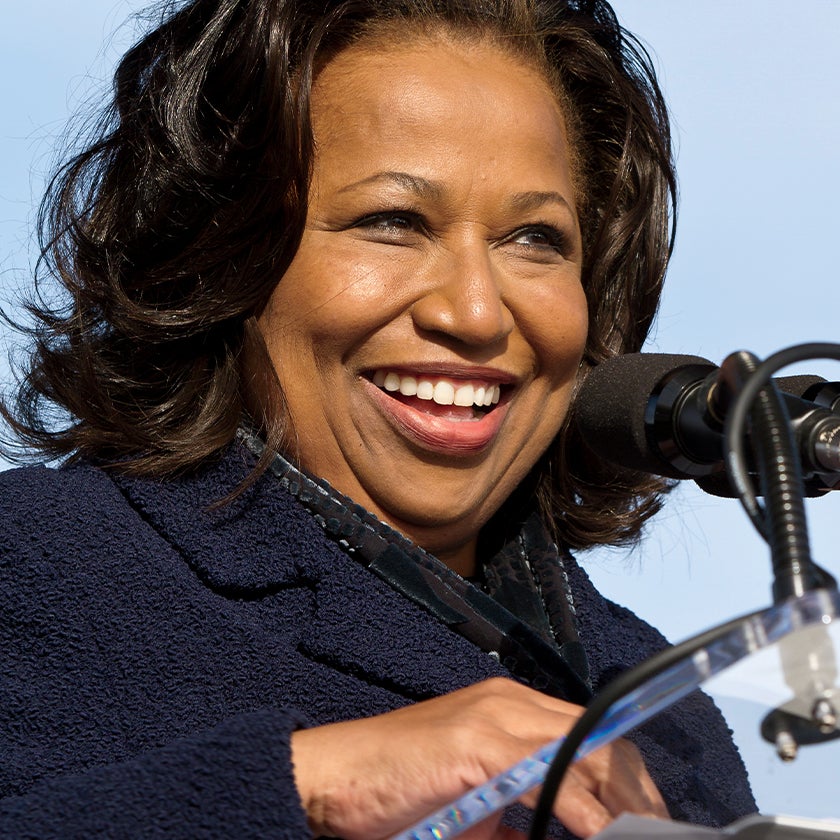
Unfortunately, that is no longer possible in this election cycle, as two of the most viable women candidates bowed out of the race in the winter. Senators Kamala Harris of California and Elizabeth Warren of Massachusetts had distinct and strong platforms and would probably have made extraordinary presidents, but it was not to be—this time.
A POOL OF TALENT
Now the talk has turned to who presumptive Democratic nominee Joe Biden will pick as his running mate. In March, when Biden pledged to choose a woman, many people argued that his ticket would be greatly strengthened by a Black woman. However, several names have since been bandied about, including Warren’s and Harris’s.
Shortly after Warren ended her bid, she stated, “Choose to fight only righteous fights, because then when things get tough—and they will—you will know that there is only one option ahead of you: Nevertheless, you must persist.” Throughout Warren’s campaign, she persisted. Of course, it’s natural for women to persist, even if the world isn’t ready.
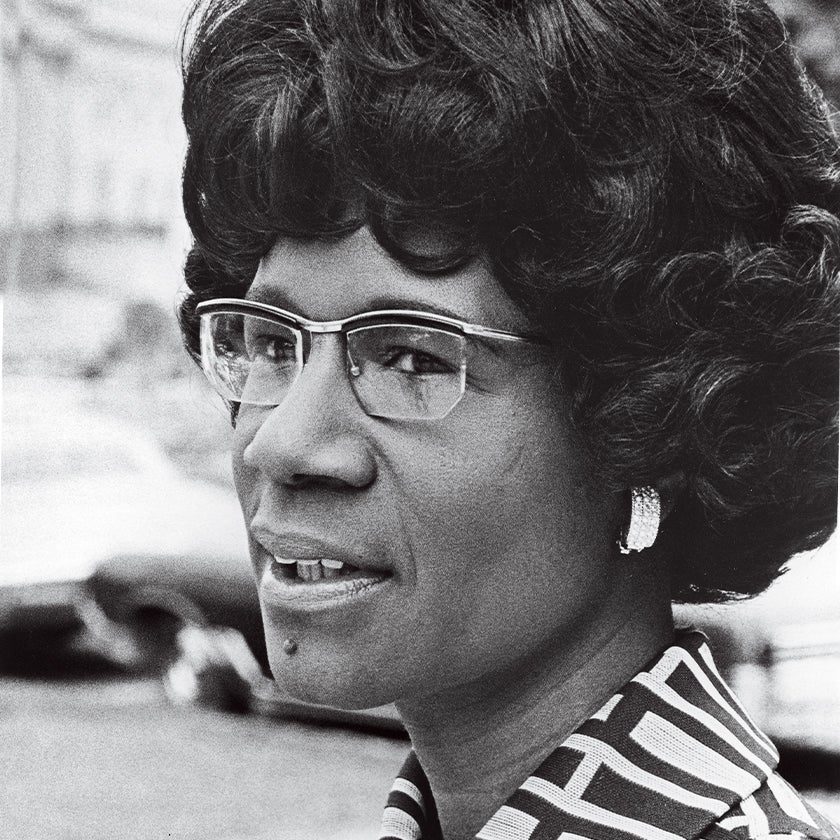
During her presidential run, Warren put forth a well-laid-out plan that addressed everything from developing affordable housing to fixing the economy to canceling student loan debt to helping uplift Black America. Though at press time the VP selection process is ongoing, she explains her plans to address inequalities affecting the Black community.
“We can’t talk about this moment in history without addressing the racist violence against Black people in our country—often at the hands of police officers,” Warren says. “George Floyd, Breonna Taylor, Ahmaud Arbery and so many more Black Americans should still be alive today. I am committed to fighting for real reforms that address police brutality, starting with ending qualified immunity for police officers, to allow lawsuits against officers and departments that violate constitutional rights; expanding independent investigations and prosecutions of officer-involved shootings; providing civilian oversight of police departments and practices; and establishing federal standards on the use of force that ban practices that too often result in unnecessary damage and death.
We also need to dismantle racial disparities in every part of our society, from housing to health care to education. I also want to be thoughtful about the responsibility that I and others have as White Americans in this moment. We need to ask ourselves what we are doing proactively, every day, to dismantle systemic racism in our communities, our workplaces and our circles of influence. It’s not enough to stand as an ally. We must go further and be anti-racist.”
THE CRITERIA
Shortly after Biden announced that his VP pick would be a woman, his team named the members of the Vice Presidential Selection Committee—former U.S. Senator Christopher J. Dodd; U.S. Representative Lisa Blunt Rochester; Los Angeles Mayor Eric Garcetti; and Cynthia C. Hogan, a former White House and Senate counsel to Biden.
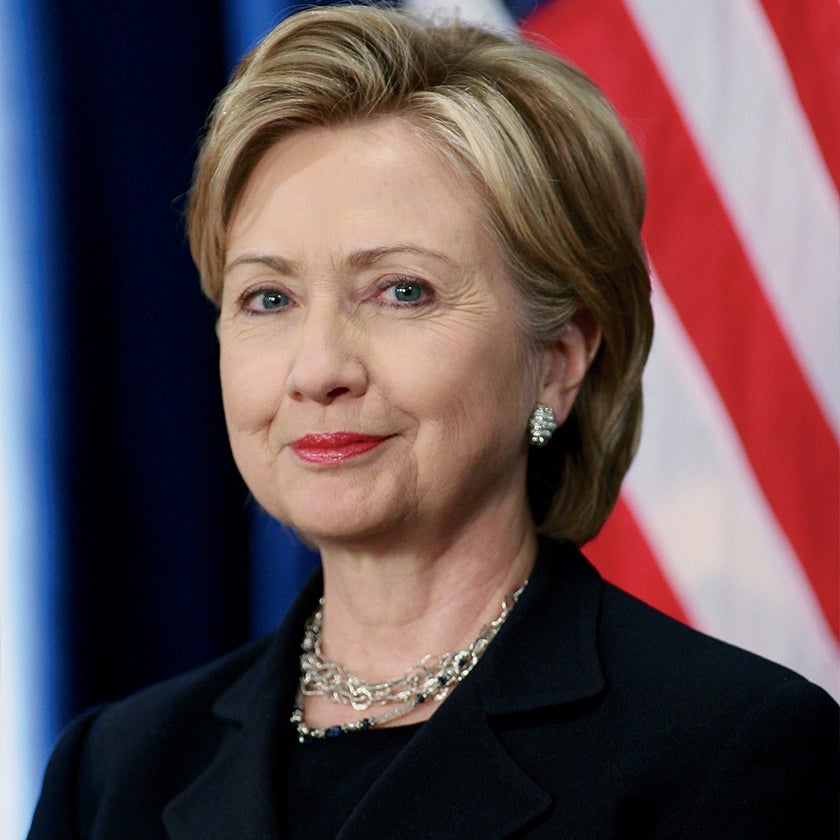
But what should the committee look for when it comes to a running mate? “When a presidential nominee is deciding on his or her number two, it should be someone who understands that power means service,” says April Ryan, journalist and White House correspondent. “Someone who complements [the president’s] weaknesses and has the ability to tell hard truths but will get on board once the decision is made.
The number two should share the same vision of America and be a loyal team player. A running mate should be able to see the greater good but also spotlight communities that are devastated, hurting and in need.”
One person who continues to come up as a top pick for the spot is Senator Kamala Harris. When she bowed out of the race, many of her supporters saw it as an obvious opportunity for Biden to make her his choice for VP. A recent CNN ranking of ten possible women running mates placed Harris at the top of the list and noted that Biden seemed to have moved on from their tense June 2019 debate exchange, in which Harris busted his chops over his flip-flopping on the issue of busing.
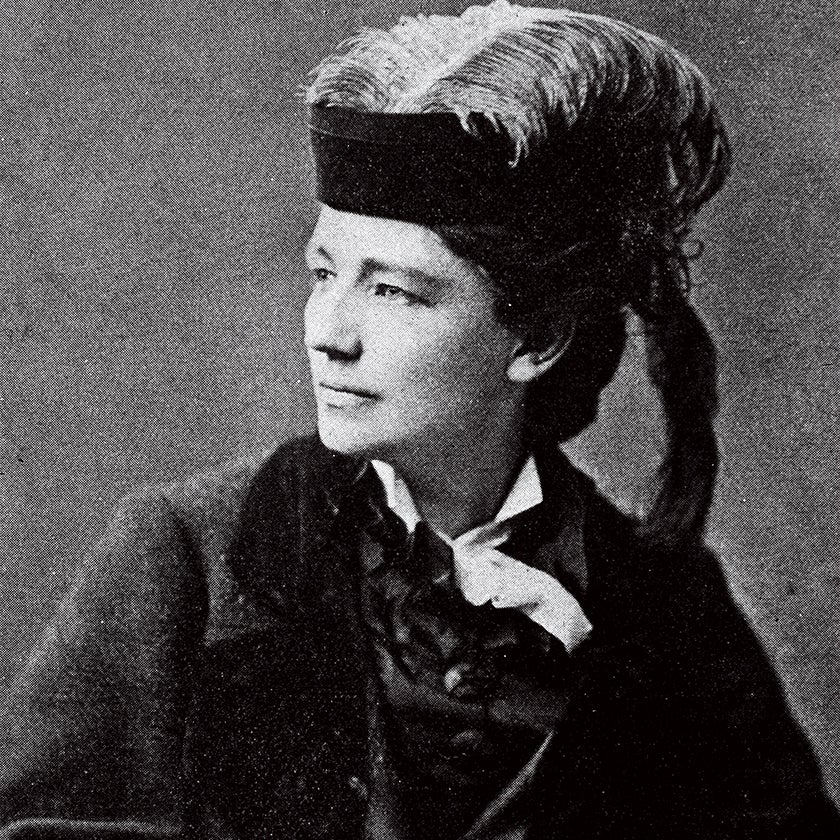
In an interview with MSNBC’s Joy Ann Reid in April, Harris was asked if she believed Biden should select a woman of color for the VP slot. Harris replied that she believed it was important to have a woman, especially one of color, on the ticket. She also stressed that people should take Biden at his word when he pledged to choose a woman.
When Reid followed up by asking Harris if she was being vetted, the senator responded,“I am not aware if I’m being vetted, but I have to tell you, Joy, I’m focused on what we’re doing right now with this coronavirus. I am honored to be considered, if I am being considered.” Although no one is going to say outright if she is being vetted, one woman who doesn’t mince words about vying for the position is Stacey Abrams.
Black voters do not have a tradition of using vote-by-mail, because we are among the communities most likely to have our ballots rejected.”
—STACEY ABRAMS,
POLITICIAN
Although she may have lost the Georgia race for governor in 2018, the validity of the election was challenged in lawsuits. Abrams now has her eyes on a more substantial prize, even as she works to protect voting rights for all people. Shortly after losing the gubernatorial election, she launched Fair Fight, an organization that aims to safeguard the voting processes in Georgia and across the United States, particularly as they pertain to young people and people of color.
“When I launched Fair Fight 2020 in 2019, we embedded ourselves in 20 states,” she says. “Two states are no longer part of the program, because we were successful in Kentucky and Louisiana. But in the remaining states, we are working to secure the elections for a hundred million voters. We are in 18 states with 43 staffers, and we know that voter suppression is real in every one of those states. That’s why we’re also working with organizations that are filing lawsuits to protect the right to vote.”
SAFEGUARDING OUR BALLOTS
About the upcoming presidential election, Abrams adds, “If we push for fair elections, where everyone who wants to can vote by mail, where people can vote in-person early and in-person the day-of, and comply with the CDC guidelines, we can have safe and accessible elections that particularly respect the needs of Black voters. Black voters do not have a tradition of heavy usage of vote-by-mail, because we are among the communities most likely to have our ballots rejected.”
Abrams believes her goal to ensure fair voting in every state is attainable. On the subject of the current White House occupant and what is needed to defeat him, she is direct. “It’s three things,” she says. “One is that we have to have access to the right to vote, which is why the guardrails we are put- ting in place are absolutely necessary.
Number two, we have to have a candidate who is willing to campaign to, and work with, every community. And I’m proud of the fact that Joe Biden understands that. He takes no one for granted, and I believe he is going to run a robust campaign that engages every community and does the work to turn them out.
And number three, we have to have a cogent message that isn’t simply about Donald Trump and his incompetence and his lack of moral fiber—it has to be a conversation about what America is capable of. And if we have a cogent message, plus an excellent messenger in Joe Biden, and a fixed system that allows people to cast their ballot, we win.”
Asked whether she might become the VP pick, Abrams focuses her answer on young people. “I want them to know that it is okay to speak up when you’re called,” she says. “And so, as I said, I’ve been answering this for 14 months. What I bring is the ability to attract voters by motivating marginalized communities, which is what I did in 2018.
I also was able to knit together a coalition of people of color and White voters, and increase the participation of White, Latino, Asian-American and Black voters, as well as increasing youth participation rates.”
Abrams also has a message for ESSENCE readers: “I want everyone to understand that we have to be willing to declare our capacity,” she says. “As women, and women of color, we reaffirm our capacity when we state it aloud. But, ultimately, this is Joe Biden’s decision. And I know he’ll make the best call and the right call for his administration.”
WOMEN SOUND OFF
ESSENCE reached out to several thought leaders to get their take on who should be Biden’s running mate. Here’s what they said
ANGELA RYE, principal and CEO of IMPACT Strategies
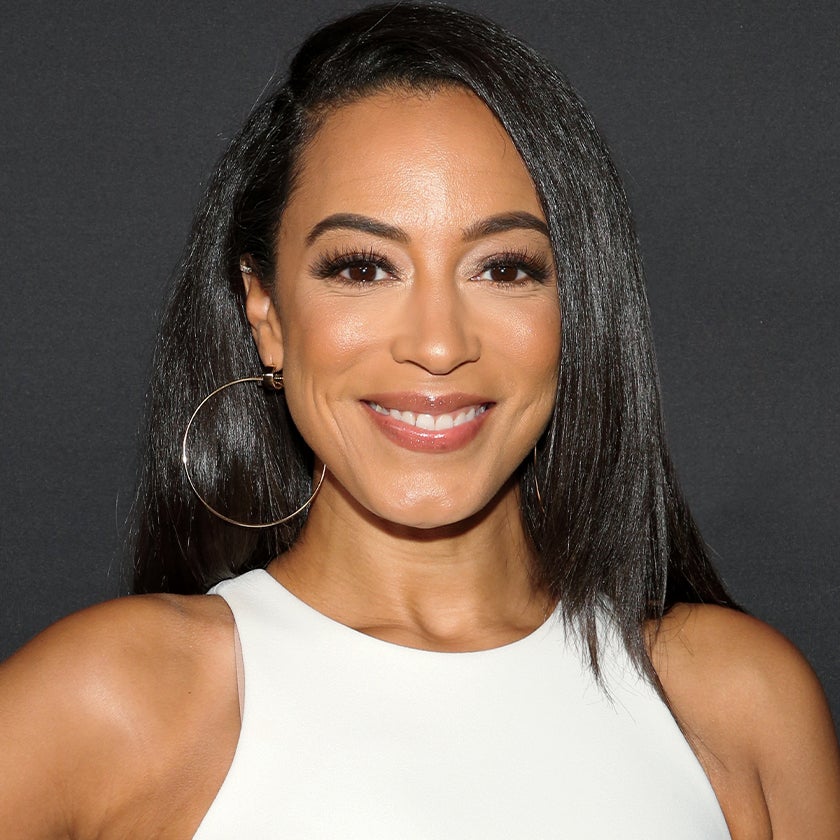
“The VP better be a Black woman, since we raised his campaign from the dead.”
EBONI K. WILLIAMS, attorney and cohost of State of the Culture on REVOLT TV
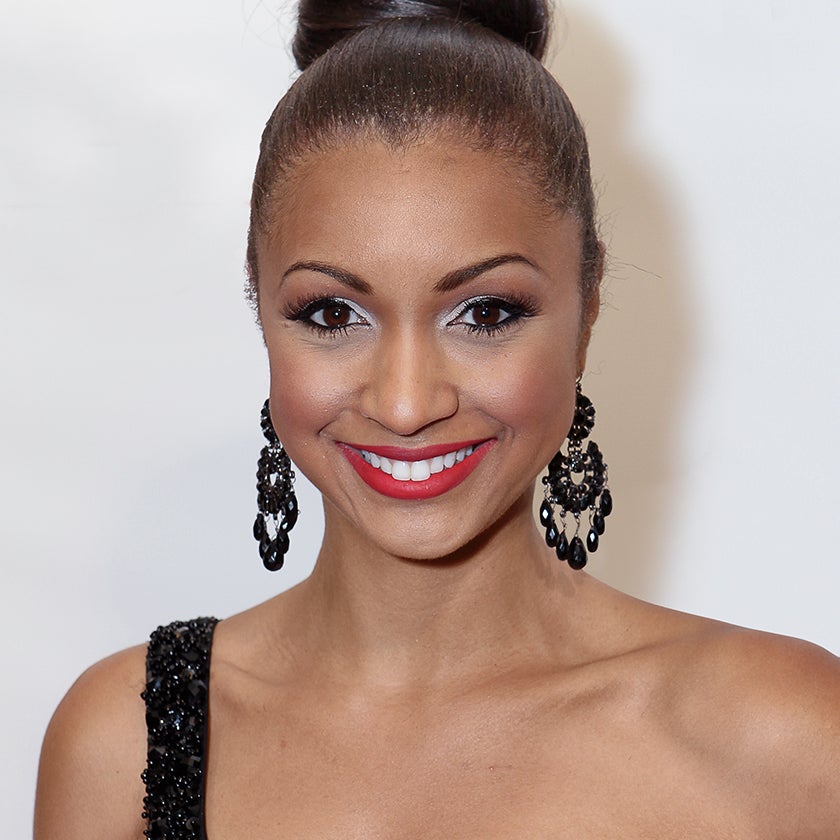
“Atlanta Mayor Keisha Lance Bottoms is my pick, because Biden’s VP will carry an enormous responsibility. While every VP pick must act as a surrogate for the top of the ticket, Biden is in desperate need of a surrogate who can excite, encourage and persuade Black voter turnout. Without a political superstar like Barack Obama leading the ticket, Biden is almost completely reliant on his VP nominee to drive Obama-era turnout.
And make no mistake about it, that level of turnout is needed to defeat Trump. Mayor Bottoms is best positioned to be broadly palatable to the X factor of the Black electorate: Black men. Black women always have, and always will, do the right thing regarding our collective political interests. We will show up no matter who Biden puts on the ticket, because we understand we must. But thirteen percent of Black men voted for Trump in 2016.
Therefore we must select a vice president who will be the most compelling to them, because they are the variable. While Mayor Bottoms has had a relatively low political profile until recently, her comparatively clean political record works in her favor. She’s like the smart, attractive, down-to-earth teacher we all wanted in school.”
DONNA HYLTON, activist, author and founder and president of the nonprofit A Little Piece of Light
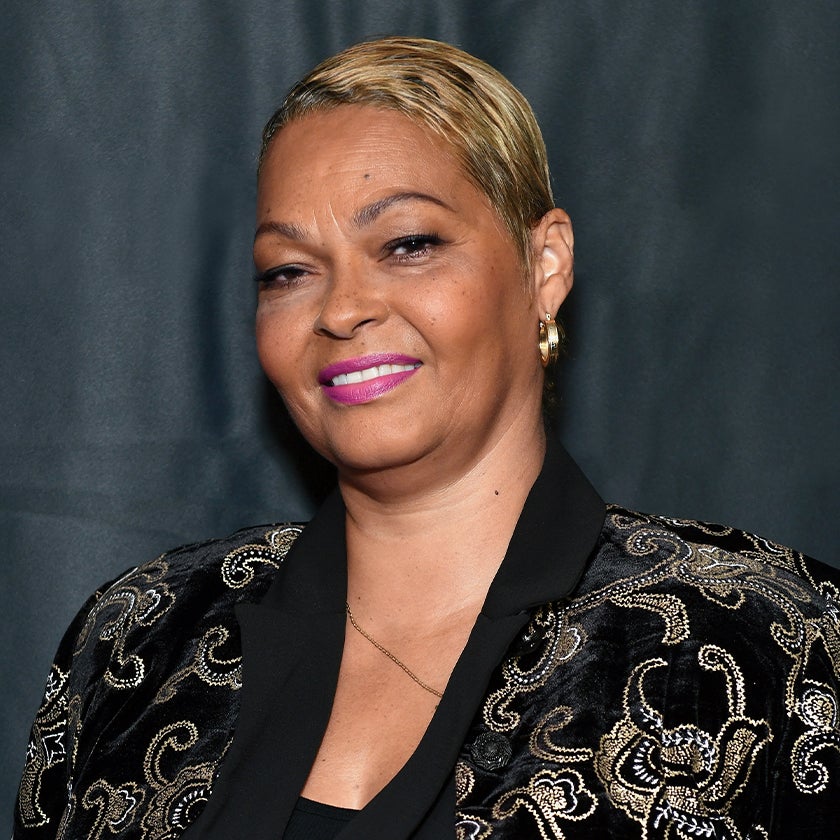
“A Black woman in the White House is a breakthrough that I hope to see in my lifetime. What is most important for this election is that Joe Biden and his running mate, whatever the race and gender, be committed to leading with empathy for our collective humanity and to holding the office in the interests of all citizens, including our most vulnerable. The lethal disparities of racism, antisemitism, sexism, poverty, violence and injustice in our damaged democracy are exposed and must be addressed and healed.”
IMANI J. WALKER, D.O., psychiatrist and “Married to Medicine” star

“Since I’m a Black woman, I would actually love to see a Black woman hold the VP spot. Right now I think the two front-runners are Stacey Abrams and Kamala Harris. I love both of them dearly, but I would love to see Stacey Abrams nab the VP spot. Since Kamala has already appeared in U.S. politics on a national level, I think it’s time to have someone like Stacey Abrams gain more prominence as well.”
